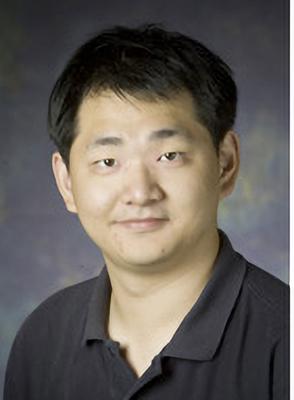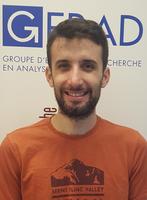Dynamic games for cyber deception
Quanyan Zhu – New York University, États-Unis

Lien pour le séminaire
Nº de réunion : 962 7774 9870
Code secret : 285404
Deception and anti-deception technologies are new paradigms of active cyber defense. They provide defenders a proactive and autonomous security mechanism by engaging the adversaries and influencing their moves to the defender’s advantage. Game theory captures the strategic and self-interested nature of attackers and defenders in cybersecurity. It provides an ideal set of quantitative tools to develop such a framework to analyze and design deception. In this talk, we first present a taxonomy of deception and counter-deception and understand how they can be conceptualized, quantified, and designed or mitigated. Then, we present a class of dynamic games of incomplete information to capture the fundamental characteristics of deception and demonstrate the applications of game theory and learning in problems such as attack engagement, lateral movement, and information manipulation. The talk will also discuss open problems and research challenges that the game theory community can address and contribute with an objective to build a multidisciplinary bridge between game theory and cybersecurity.
Biography: Quanyan Zhu received B. Eng. in Honors Electrical Engineering from McGill University in 2006, M. A. Sc. from the University of Toronto in 2008, and Ph.D. from the University of Illinois at Urbana-Champaign (UIUC) in 2013. After stints at Princeton University, he is currently an associate professor at the Department of Electrical and Computer Engineering, New York University (NYU). He is an affiliated faculty member of the Center for Urban Science and Progress (CUSP) and Center for Cyber Security (CCS) at NYU. He is a recipient of many awards, including NSF CAREER Award, NYU Goddard Junior Faculty Fellowship, NSERC Postdoctoral Fellowship (PDF), NSERC Canada Graduate Scholarship (CGS), and Mavis Future Faculty Fellowships. He spearheaded and chaired INFOCOM Workshop on Communications and Control on Smart Energy Systems (CCSES), Midwest Workshop on Control and Game Theory (WCGT), and ICRA workshop on Security and Privacy of Robotics. His current research interests include game theory, machine learning, cyber deception, network optimization and control, smart cities, Internet of Things, and cyber-physical systems. He has served as the general chair or the TPC chair of the 7th and the 11 th Conference on Decision and Game Theory for Security (GameSec) in 2016 and 2020, the 9th International Conference on NETwork Games, COntrol and OPtimisation (NETGCOOP) in 2018, the 5th International Conference on Artificial Intelligence and Security (ICAIS 2019) in 2019, and 2020 IEEE Workshop on Information Forensics and Security (WIFS). He is a co-author of three recent books published by Springer: Cyber-Security in Critical Infrastructures: A Game-Theoretic Approach (with S. Rass, S. Schauer, and S. König), A Game- and Decision-Theoretic Approach to Resilient Interdependent Network Analysis and Design (with J. Chen), and Cross-Layer Design for Secure and Resilient Cyber-Physical Systems: A Decision and Game Theoretic Approach (with Z. Xu).
Lieu
Montréal Québec
Canada


